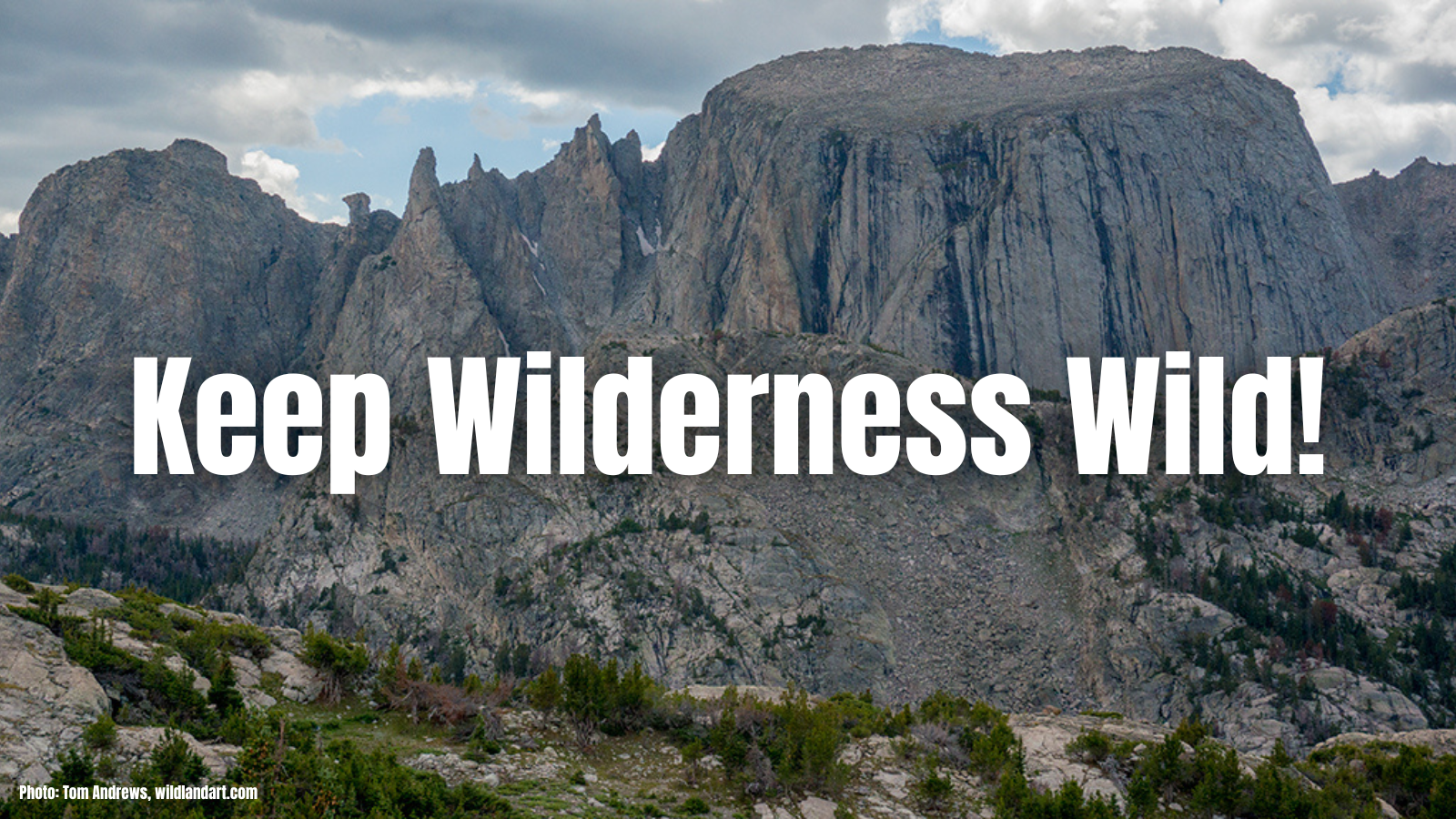The “Protecting America’s Rock Climbing Act” is still an imminent threat to Wilderness

I recently wrote an op-ed calling the proposed “Protecting America’s Rock Climbing Act” (PARC Act) an imminent threat to Wilderness. In response, members of the Access Fund, the group behind the bill, have been contacting individual publishers, pressuring them to pull the piece. They’ve (wrongly) called it misleading and “fake news,” and some have even resorted to publicly attacking the character of individual editors. Fortunately, to my knowledge, only one publication—Adventure Journal—has caved, and many climbers have contacted me privately thanking me for the piece.
I have been litigating Wilderness issues, engaging agency decision-making, and studying the Wilderness Act and its regulations for over a decade—many of my colleagues have been doing this work for several decades. We see how statutes play out on the ground, long after they are passed, and we’ve also seen a recent explosion of recreation pressure in Wilderness, climbing included. The PARC Act will absolutely weaken the Wilderness Act and open the door to additional recreation pressures throughout the National Wilderness Preservation System.
Republican Representative Curtis from Utah, touting the proposed PARC Act, called outdoor recreation an “ever-growing industry” in his state, and his state is not alone. A recent Climbing article noted that overcrowded climbing areas throughout the country are pushing climbers farther into wilderness, creating environmental and wilderness character issues. In the same article, the Access Fund reports “exponential growth” in climbers over the last few decades—growing from the hundreds of thousands to roughly 8 million today.
The PARC Act itself was drafted in response to federal agencies trying to get a handle on escalating climbing impacts in Wilderness and trying to bring agency management into compliance with the Wilderness Act. In Joshua Tree, for example, where visitor use has more than doubled since 2000, “[t]he National Park Service estimates there could be as many as 20,000 bolts in the park; 30% are in wilderness.” Expressing concern about growing climbing pressures and trampled desert soil crusts and vegetation, the Park Service notified the public that it would be creating a new climbing management plan to better manage climbing in the Wilderness and comply with the Wilderness Act. It (accurately) noted that the Wilderness Act prohibits installations in Wilderness and that fixed climbing anchors are considered installations. Other agencies, like the Forest Service, have long held this position—the Park Service just started doing what was legally required of it all along.
The PARC Act would undermine these efforts and weaken the Wilderness Act by codifying “the placement, use, and maintenance of fixed anchors” as “allowable activities” in Wilderness.
Downplaying the problem, a few climbers argued that indiscriminate bolting and heavy use will not occur. This is conjecture, particularly given the rapid growth in climbing and given the PARC Act itself places no restrictions on anchor use in Wilderness. It kicks that can down the road to future agency guidance policies, which are not law and can be changed at any time. The PARC Act makes no distinction between rappelling anchors, bolted routes, discrete pitons, or indiscriminate bolting.
Our op-ed expressed serious concerns over the impact of the PARC Act on both the integrity of the Wilderness Act—our most protective public lands statute—and the National Wilderness Preservation System because, ultimately, it is the language of the statute that matters, not opinions on climbing practices or what already strained Wilderness administering agencies may or may not do through future policy. The law is what matters, and the PARC Act, if passed, will change the law across the entire National Wilderness Preservation System.
Over 40 conservation groups, the Forest Service, and the Park Service have opposed the bill.
Amendments to the bill, which the agencies have not endorsed, have made things worse by arguably mandating the maintenance of existing fixed anchors in Wilderness.
You can take a deeper dive into the issue through our Q & A here, and read more about why all of this matters here.
TAKE ACTION: Please urge your members of Congress to oppose the PARC Act as well as its Senate counterpart, S.873.
Dana Johnson is the Policy Director for Wilderness Watch.
When you subscribe to the blog, we will send you an e-mail when there are new updates on the site so you wouldn't miss them.
Contact Us
Wilderness Watch
P.O. Box 9175
Missoula, MT 59807
P: 406.542.2048
Press Inquiries: 406.542.2048 x2
E: wild@wildernesswatch.org
Minneapolis, MN Office
2833 43rd Avenue South
Minneapolis, MN 55406
P: 612.201.9266
Moscow, ID Office
P.O. Box 9765
Moscow, ID 83843

Comments